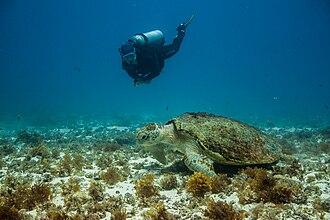
Has your wife crossed the line from fun Halloween decorations to total psychopathy? Look for the signs below that she’s overdone it:
Read More
Has your wife crossed the line from fun Halloween decorations to total psychopathy? Look for the signs below that she’s overdone it:
Read More
SAN FRANCISCO – The National Guard has been called to California’s Golden City to neutralize a 600-foot-tall Katie Porter, who is apparently rampaging her way through San Francisco.
Read More
| Picture of the day |
|---|

|
|
Loggerhead sea turtle (Caretta caretta) with diver in the background, Fernando de Noronha Marine National Park, Pernambuco, Brazil
|